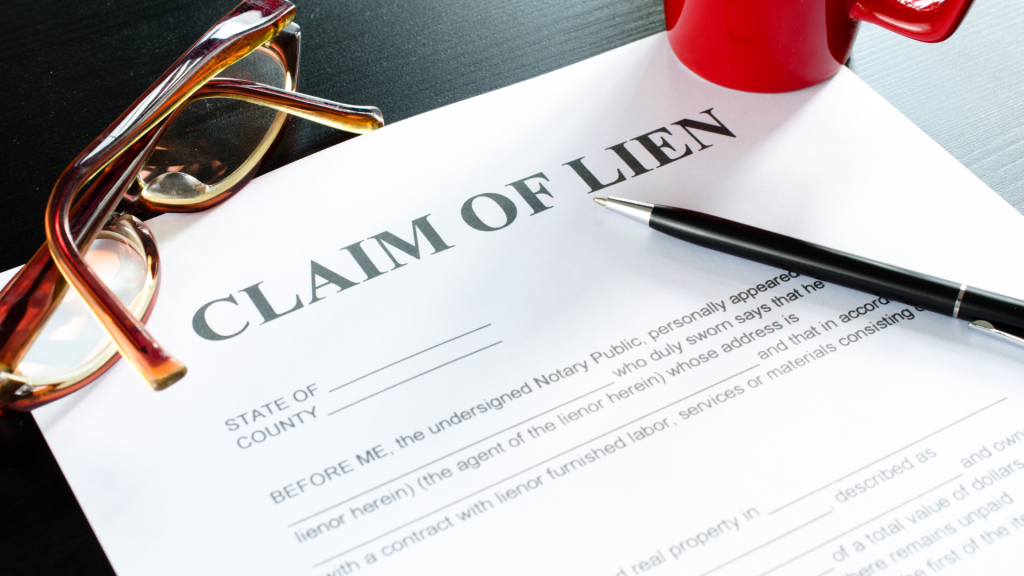If you’ve ever applied for financing for a home or car, you’ve taken out a loan, which is money provided to you from a lender. Usually, to secure that loan and guarantee your repayment of debt, a lien is attached to that agreement as collateral. However, liens aren’t just common in purchases.
So what exactly is a lien, and in what situations are they most common? Read on for all the basic information you’ll need to know to understand what a lien is, and when (and how) they could impact you.
What is a Lien?
A lien is a claim or legal right (established by a creditor or judge) against assets that are typically used as collateral in a loan or debt, with the most common type of asset being a home.
A lien serves as a guarantee to a creditor for repayment of a loan or debt. If the debt is not repaid after the term of the loan or agreement, the creditor can seize the asset that is the subject of the lien.
For example, if you were to take out a lien against your home to, say, fund a business, you would be agreeing that the bank could seize your home if you do not repay the loan by the end of its term. As you can see, this can be a big risk in the case that your business is not successful, as you’d end up in further debt and risk losing your home.
Common Types of Liens
Consensual Liens are, as the name suggests, voluntary agreements where the borrower consents to offer up collateral (like a home) in exchange for a loan or other advance of credit.
The most common type of consensual lien is a residential mortgage, where the home buyer consents to the bank taking interest in the home in exchange for the mortgage, essentially guaranteeing them the right to recover the debt by taking ownership of, and selling, your property to earn the cash back for your mortgage.
Federal Tax Liens are exactly what they sound like – an action taken by the federal government as a last-resort to secure payment of your individual or business taxes. While tax liens don’t force you to sell your home in order to pay your taxes, they do ensure that when you sell your home, the IRS has dibs on the proceeds as payment for the taxes you owe.
Statutory Liens are typically those built into contracts and have legal backing. A classic example of a statutory lien is a mechanic’s or builder’s lien, which is generated if you don’t pay a contractor for completing work on your house. This type of lien would then give the contractor the right to file a lien against your home for the amount they are owed.
Judgment Liens are developed when a judge grants a creditor the right to take interest in your property or personal assets. For example, if you injure someone in a car accident that was the result of your fault, the injured party could sue you for damages. If your car insurance doesn’t cover the court fees and case you’re being sued for, a judicial lien could be placed against your property to secure payment of the claim to the injured party, which can include more than just your home (ie: your paychecks, bank accounts, etc.).
What are My Options When Dealing with a Lien?
Depending on the situation, a lien can be a scary thing to deal with since your biggest assets are at risk. Of course, your best bet is to pay off the lien in full and request it be removed. However, if you don’t have access to that amount of cash, you can request to work out a payment settlement or payoff terms that work for both you and the lender.
Additionally, if you believe a lien has been improperly placed on your property, you can dispute it by contacting the lender, or by filing an appeal if you believe it was issued in error.
Finally, if you have questions and aren’t sure how to proceed, it’s best to contact a lawyer who specializes in liens to learn your rights and options.
LEGAL DISCLAIMER
The opinions expressed in this post are for informational purposes only. To determine the best financing for your personal circumstances and goals, we advise you to consult with a licensed advisor.
Post Disclaimer
The information contained in this post is for general information purposes only. The information is provided by FinanceOpinion.net and while we endeavor to keep the information up to date and correct, we make no representations or warranties of any kind, express or implied, about the completeness, accuracy, reliability, suitability or availability with respect to the website or the information, products, services, or related graphics contained on the post for any purpose.

